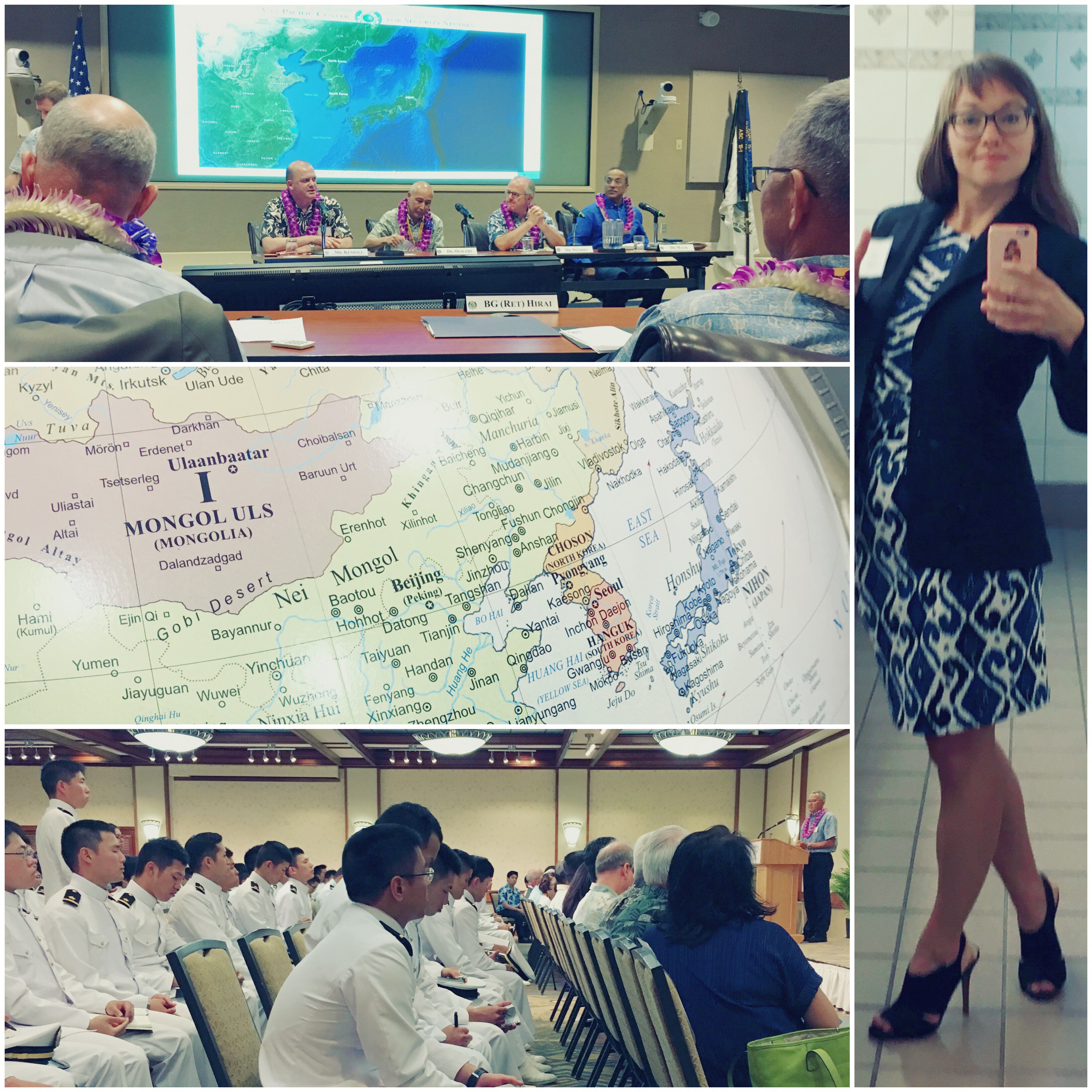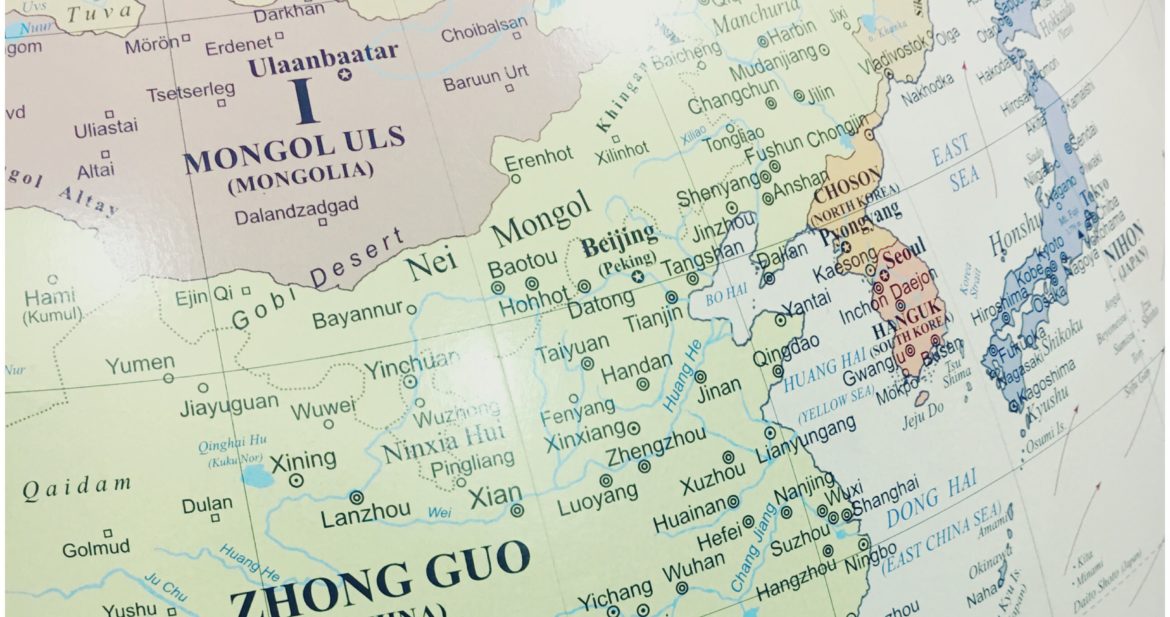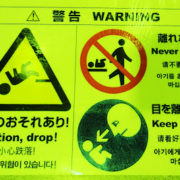
A lecture on Asia Pacific Security Trends…and my business casual trends. Thanks, Mom, for this cute ikat dress! My Coach shoes are killer. Seriously the most uncomfortable shoes I have ever owned. Text me if you want them.
An expected global population boom concentrated in Africa and the Middle East will present opportunities and challenges for officers beginning their military careers, said Brig. Gen. (Ret) James T. Hirai, the deputy general of the Daniel K. Inouye Asia-Pacific Center for Security Studies (APCSS). More than 200 officers of the Japan Maritime Self Defense Force–many newly commissioned ensigns–attended the lecture while their ship docked in Hawaii before heading to California.
Have you read George Friedman’s “The Next 100 Years”? I couldn’t put it down. The author predicts massive shifts in immigration, huge upheavals in American politics, that Russian invasion of Ukraine (2014-present)—all kinds of interesting things. So when I got an email from the Japan US Military Program (JUMP) with a chance to sign up for the lecture and discussion panel, I was all over that. Shockingly, no one here wanted to go. What! Did I mentioned there was a free lunch at the Hale Koa Hotel on Waikiki Beach AND free parking?? Roughly one million friends from Japan and Norfolk would have loved to go, but sadly didn’t have enough notice to book plane tickets. Or babysitters. So I went and met my new lifelong pal Sumiko-san, who was a total hoot, chatty and interesting, and introduced me to everyone she didn’t know.
But back to geopolitical forecasting. No one can predict global shocks like natural disasters or terrorist attacks, of course, but what we can reliably predict is population growth, a trend least likely to be affected by those shocks, Hirai said. He encouraged the new officers to think about the next 30 years of their career (or 30 years of this Hawaiian mortgage, I thought). By 2050, India’s population will exceed China’s. Nearly 30 countries in Africa will see their populations double, and by 2050 that continent will contain 25% of the world’s people. The US will have a steady population, thanks to immigration; European populations will decline. Indo-Asia-Pacific growth will peak mid-century. Notice much of this growth occurs in regions without a “demographic bonus,” (demographic bonus = the group entering the workforce is healthy and educated). That presents problems. Problems today—youth unemployment, aging populations, immigration, urbanization—will be exacerbated by this globally lopsided baby boom, and that will hugely affect the trajectory of military careers beginning now. As skyrocketing populations prompt a grab for control of trade routes and ocean resources from the Arctic to the Indian Ocean, use of international seas is one aspect of global order that needs to be preserved.
“Some of our best diplomacy occurs when we have military strength,” Hirai said.
In a Q&A session, Hirai discussed the contested navigation of the South China Sea: “This will continue to be a major problem,” he said.
How about North Korea? “The simple answer is: it’s not good,” Hirai said to widespread chuckles. The good news, if you can call it that, is that no country is willing to engage North Korea alone.
I was very interested in this question of course because of this spring’s news that North Korean missiles have a nice target of US military bases in Japan. What the what?! Horrifying. Not to mention we’re not so very far from there. Can’t hit the mainland? It’s cool. Hitting Hawaii’s been a war-starter before. Maybe we should name our house The Fallout Shelter.
Hirai said that military advisers report they’ve never seen North Korean relations this bad before, but it’s “one of those issues that draws the US and Japan together…and in this case, we could not have a better partner.”
His final advice to the young Japanese officers was to seek and promote shared understanding, to learn as much as possible about viewpoints different from their own.
“Take military engagement very seriously,” he said, “and prepare yourselves diligently.”
Then we broke for lunch: a garden salad proceeded sliced roast beef and a crab cake on udon noodles with grilled vegetables. Yum yum YUM! My dress was a bit tight already thanks to some moving-related weight gain, but you know what, that tasty free lunch wasn’t going to eat itself. YUM. Priorities, seize the day and all that. And lychee sorbet for dessert with coffee. I felt so spoiled. And our table was totally fun—the aforementioned Sumiko-san regaled us with wild stories about fleeing Taiwan as a baby born to Japanese parents at the end of WWII and her time as a stewardess for Air France. Plus the Hawaii Stars and Stripes reporter was at our table. He’d been assigned to the lecture and said he’d stayed for lunch to meet interesting people. “…and the verdict is…?” I asked. “Did you meet any interesting people?” The table laughed until he was obligated to say yes. Score! Interesting by manipulation!
Then we all took a pleasant stroll over to the APCSS for a tour of the facility and a panel discussion on Asia Pacific security and defense. SO INTERESTING.
A brief aside: business casual…I had to google it and consult my friend Mary (smocking—too casual). And my mom. Panic—I just purged a bunch of clothes dating to the era when I needed business casual. It’s ok—my mom gave me a great blue and black ikat MK dress for Christmas, here’s my favorite BR black wool blazer, and I have these awesome killer black Coach peep-toe heels I got on sale and have only worn once. Why only once? They’re so cute! I tossed them into my bag and slid them on in the parking garage downtown. Oooh, right, I don’t wear them because they feel like having my ankle in a vice while someone is torturing the balls of my feet for information. Well I can’t wear flip flops, so…. I hobbled across the street, hobbled up the stairs, and hobbled across the slick, stamped concrete reception area. I checked the hotel info and saw the event (which I thought started at 10:30am) had started at 10am. It was currently 10:11am. Hobble hobble hobble! Hobble hobble! Stupid-late-tight-dress-sloppy-mom! Hobble hobble! Hobble…. I was the first one there. It, in fact, started at 10:30. Cool put-together on-time got-it-together smartypants-mom took a seat in the front row and coolly ignored her feet.
Right, so we’re back at APCSS. SO INTERESTING.
The Panel Experts: Northeast Asia: James Kendall, the executive director for JUMP and a Fellow for Common Challenges; Southeast Asia: Alfred Oehlers, PhD, APCSS professor; India/South Asia: Chris J.G. Snedden, PhD, APCSS professor; China: J. Mohan Malik, PhD, APCSS professor.
The panel began by discussing North Korea some more. Kendall said a collapse of the PDRK benefits no one—the destabilization in the region and massive amounts of fleeing immigrants puts a high price tag on a total failure of the regime. (It benefits no one but peasant North Koreans doing the fleeing, maybe, I hedged mentally). Best case scenario is for Kim to keep quiet (and feed his people, I think). Kendall quoted Admiral Harris, PACOM Commander, who said in April, “We want to bring him to his senses, not his knees.”
Another interesting thing Kendall said regarded the contested Senkaku Islands—in multinational armed conflict simulations, all nations were careful to avoid conflict…in simulated 2018. That changed when the simulations took place in 2028, at a time China is projected to outnumber US air and naval capabilities. With more strength came the willingness to assume greater risk of conflict to win disputes. That information could directly affect my family’s future. Well, ALL of this really affects everyone, in one way or another.
The final discussion point I’ll chat about was China’s Silk Road revival, meant to tie the East to the West by the ancient route. What should the US, Japan, and other countries’ response be to China’s new Silk Road?
Malik saw potential for conflict at every level: will the bids be transparent? Will they use Chinese or local labor? If Chinese laborers want to bring massive amounts of pork to eat while working in Muslim Pakistan, what conflicts may result? Will the construction be environmentally friendly? Transparency is key for the project to promote connectivity across the region and avoid conflict, he said.
Oehlers added that his home country of Singapore was noticeably excluded from the recent Silk Road forums in Beijing meeting to discuss the project. If China tries to steamroll smaller countries and economies, resisting will create conflict, he said, but will offer the world alternatives to Chinese power, while withdrawal cedes ground—and power—to China.
Another source of conflict in the area is the centuries-long rivalry between India and China, said Snedden. That seems obvious now that he said it, but I have never thought about that before. They always seemed so far distant to me, but clearly they share a border with each other and are separated only by relatively small countries. As India’s population exceeds China’s, control of the Indian Ocean and its resources could be a huge source of conflict.
The panel ended promptly at 3pm. After saying hello to a couple JUMP people I recognized from the awesome JUMP event we attended at the National Museum of Naval Aviation in Pensacola last October, I zipped–er, hobbled–back to my car (free $48 parking!) and thought about geopolitics all the way home. And all evening. And the next day. And still.
My take? THE POPULATION IS BOOMING AND WE’RE ALL GOING TO DIE! But we already knew that. Hopefully we’ll all live long enough to attend another thought-provoking discussion like this one, but if missiles start flying, you’re welcome to join me at The Fallout Shelter. Bonus: free pair of killer black heels for you to take home after the fallout party.

I forgot Passport Diaries was having technical issues last fall and these photos never even got posted. Taiko drumming, Japanese dance, and a speech about US-Japan ties October 22, 2016 at the National Museum of Naval Aviation!

 Polly Put the Kettle On, We’ll All Have Tea!
Polly Put the Kettle On, We’ll All Have Tea! Furniture
Furniture Low Pressure Southeast of Mongolia is Moving East
Low Pressure Southeast of Mongolia is Moving East Parenting Advice
Parenting Advice